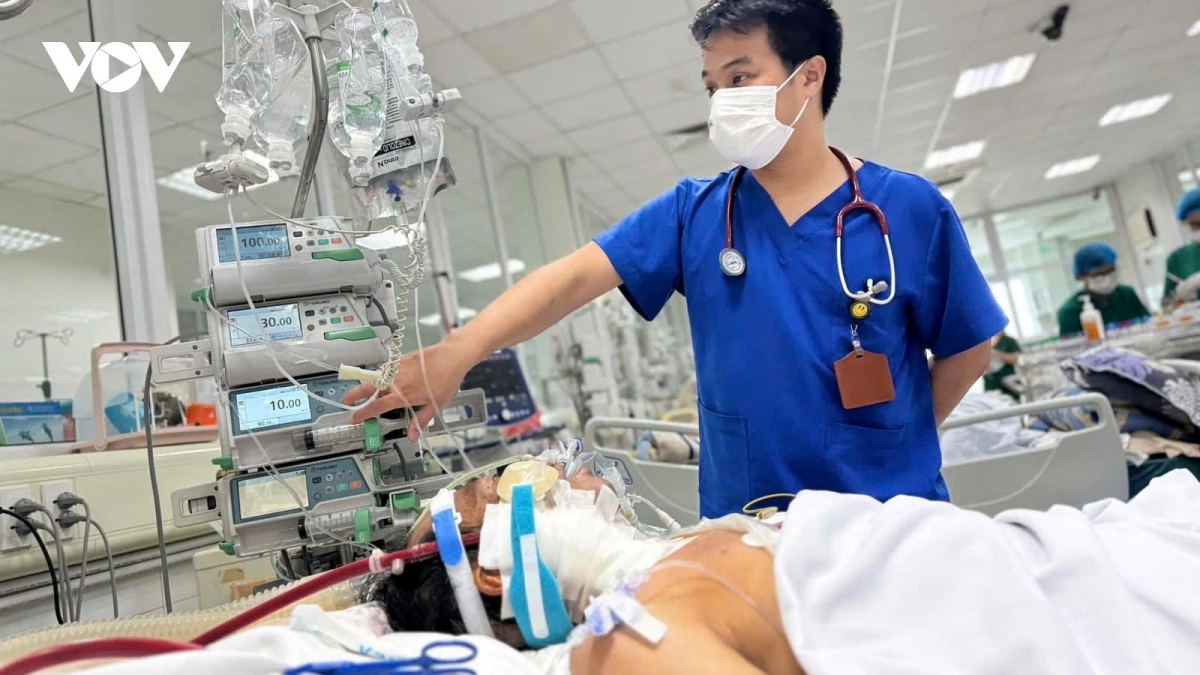Severe flu patients on the rise, require mechanical ventilation and ECMO life support
VOV.VN - Over the past few days, many people infected with Influenza A have been hospitalized in severe conditions, requiring mechanical ventilation and Extracorporeal Membrane Oxygenation (ECMO), a type of artificial life support.

The National Hospital for Tropical Diseases in Hanoi is currently treating eight severe flu patients, with some requiring ECMO which is used for life-threatening heart and lung conditions.
One such case is a 58-year-old man from Son Duong district of Tuyen Quang province, who has a history of mild hypertension but did not consistently take his medication. He had smoked cigarettes for 30 years before quitting 10 years ago.
About three weeks before being hospitalized, the man experienced symptoms of coughing, fever, and shortness of breath. He self-medicated at home for a week, but his condition did not improve. When admitted to the hospital, he tested positive for influenza A.
Despite intensive treatment, his breathing difficulties worsened, leading to severe respiratory failure, necessitating intubation. He was then transferred to the Intensive Care Center at the National Hospital for Tropical Diseases in Hanoi, suffering septic shock and requiring mechanical ventilation and the ECMO therapy.
After the ECMO procedure, his vital signs temporarily stabilized. However, due to severe septic shock and infection, his conditions remain critical and require close monitoring.
According to doctors, many flu patients suffer septic shocks and multiple organ failure due to negligence. Severe influenza A can trigger septic shock, heart failure, or kidney failure, causing multiple organ dysfunction. ECMO is the last option which is used to help reduce the burden on the heart and lungs, and allow other organs to recover.
Dr. Phuc, deputy director of the Intensive Care Center at the National Hospital for Tropical Diseases, says people with underlying health conditions, the elderly, and individuals with weakened immune systems must be especially cautious when contracting the flu. Influenza can become severe, leading to diffuse lung damage, bacterial superinfection, myocarditis, multiple organ failure, and even death.
Meanwhile, many people tend to underestimate the flu, believing it to be a minor illness and delaying early medical consultation. For those with weakened immune systems, the flu can lead to serious complications, making prognosis during emergency care very challenging.
Early detection and treatment of influenza are crucial, he warned.
People with chronic diseases should get vaccinated against the flu annually. It is also essential to follow personal protection measures, particularly for high-risk groups.
Dr. Phuc noted that the number of flu cases has increased in recent times due to the cold weather in northern Vietnam. Moreover, the Lunar New Year holiday is a time when respiratory diseases, especially the flu, have a high risk of spreading due to travel, social interactions, and numerous festivals. Influenza A and B are the most common types.
According to the Ministry of Health, Vietnam records between 600,000 and 1,000,000 flu cases annually. Cases occur year-round, with an increasing trend during seasonal transitions from summer to autumn and winter to spring.



